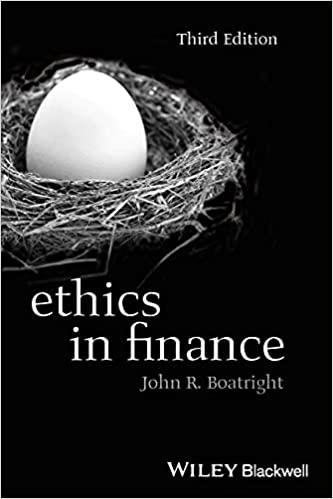Question
Sarquella Ltd is a family business that has been making cooked sausages for more than 80 years. Currently, the company needs to make an important
Sarquella Ltd is a family business that has been making cooked sausages for more than 80 years. Currently, the company needs to make an important investment in its factory to renew and modernise the plant and equipment. At the same time, its owner and CEO, Raphael V, is thinking on undertaking a radical shift in the company long-standing history: refurbish completely the factory and start the production of meat-free products, which would replicate the taste and texture present in meat whilst being better for the planet and kinder to animals. Both investments, which are mutually exclusive, require of X million (X to be determined below). The company has to finance the investment from competitive capital markets, as it has no (excess) cash at hand (but also no debt). Expert consultants reckon that maintaining the traditional meat production will yield a cash flow of 55 million in a year time with certainty. Shifting into meat-free products is riskier, and can turn the company (with equal probabilities) into a highly successful venture, with a cash flow of 100 million in one year or into a failure of a 25 million cash flow in case the meat-free products are not well received. Suppose for simplicity that after the realization of the cash flows, the company is terminated and liquidated at a value of 0. After the money is raised, Raphael can choose either strategy, and the investors are aware of that. We assume everybody is risk-neutral, there is no discounting and no taxes nor bankruptcy costs.
(a) Now assume that the required investment is X=50 million. Suppose that the firm raises the necessary investment using debt with promised repayment (i.e., face value) F, due in one year. For any possible level of F (50 million), which project is Raphael going to choose? Hint: try different values of F. Under which value(s) of F will CEOs decision be efficient (in the sense of maximizing the total firms value)?
(b) Can the company obtain the required 50 million using debt financing? If yes, what face value would Raphael offer? If not, how can covenants help solving the problem?
(c) Can the company obtain the required 50 million using equity financing? If yes, which fraction of the equity should the company offer? Which project is Raphael going to choose? Explain the differences, if any, with the results in part (b).
(d) Now assume that the required investment is 45 million. Will Raphael be able to raise the required money by issuing debt? If yes, what face value would he offer? (e) Now assume that the required investment is 35 million. Will Raphael be able to raise the required money by issuing debt? If yes, what face value would he offer? Explain the differences, if any, with the results in part (d).
Step by Step Solution
There are 3 Steps involved in it
Step: 1

Get Instant Access to Expert-Tailored Solutions
See step-by-step solutions with expert insights and AI powered tools for academic success
Step: 2

Step: 3

Ace Your Homework with AI
Get the answers you need in no time with our AI-driven, step-by-step assistance
Get Started


